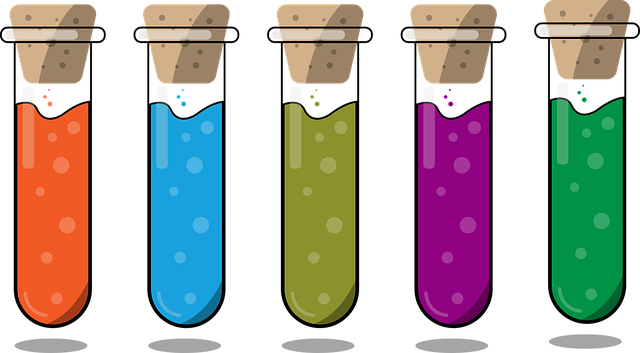The UK Iron Blood Test is a key tool for diagnosing iron deficiency, measuring ferritin levels to indicate iron reserves. Low ferritin suggests insufficient stored iron, prompting further evaluation and treatment options like dietary changes or supplements. Accurate test interpretation, based on age, sex, and health factors, is crucial for effective management of iron deficiency through regular UK Iron Blood Tests.
Iron deficiency is a common nutrient deficit, yet diagnosing it accurately can be complex. This is where ferritin level testing plays a crucial role. Understanding ferritin, a protein that stores iron in the body, is key to identifying iron deficiency. The UK Iron Blood Test offers a non-invasive method to measure ferritin levels, aiding in prompt and effective diagnosis. By interpreting test results, healthcare professionals can determine treatment options, ensuring optimal health for those at risk.
- Understanding Ferritin: The Key to Iron Deficiency Diagnosis
- UK Iron Blood Test: How It Helps Identify Deficiency
- Interpreting Results and Next Steps for Treatment
Understanding Ferritin: The Key to Iron Deficiency Diagnosis
Ferritin, a protein that stores and releases iron in the body, plays a pivotal role in diagnosing iron deficiency. Often referred to as the ‘iron storehouse’, ferritin levels serve as a crucial indicator of iron status. In the UK, an Iron Blood Test is a common method to assess iron levels, including ferritin, as part of identifying potential deficiencies. This test provides valuable insights into an individual’s overall iron health, particularly when symptoms like fatigue, weakness, and pale skin are present.
Understanding ferritin levels is essential in navigating the UK Iron Blood Test process. Normal ferritin ranges vary based on age, sex, and overall health. When ferritin levels drop below these ranges, it may indicate iron deficiency. This simple blood test can help healthcare professionals make accurate diagnoses, leading to appropriate treatments, such as dietary changes or iron supplements, to restore iron levels and alleviate symptoms associated with iron deficiency.
UK Iron Blood Test: How It Helps Identify Deficiency
In the UK, a key tool in identifying iron deficiency is the UK Iron Blood Test. This test measures the level of ferritin, a protein that stores and releases iron as needed by the body. Since ferritin is an indicator of the body’s iron reserves, its levels can help diagnose iron deficiency anemia. A low ferritin level suggests that there isn’t enough iron available for optimal health, indicating a potential deficiency.
The UK Iron Blood Test is non-invasive and typically involves taking a blood sample. Healthcare professionals use this test as part of a comprehensive assessment to differentiate between various causes of fatigue, weakness, or other symptoms associated with anemia. Accurate diagnosis through tests like these enables timely intervention to address iron deficiency, thereby improving overall health outcomes.
Interpreting Results and Next Steps for Treatment
Interpreting your ferritin level results is crucial for diagnosing iron deficiency, as recommended by healthcare professionals in the UK. A low ferritin reading indicates a potential lack of stored iron, which can be further confirmed through additional tests. The next steps involve discussing these findings with your doctor who will consider factors like symptoms, medical history, and other blood test results. Depending on the severity, treatment might include dietary changes, iron supplements, or even injections in severe cases. Regular follow-up UK Iron Blood Tests are essential to monitor progress and ensure successful management of iron deficiency.
Ferritin level testing through the UK Iron Blood Test is a crucial step in diagnosing iron deficiency. By understanding ferritin as the key marker, healthcare professionals can effectively interpret test results and initiate appropriate treatment. This simple yet powerful tool enables early identification and management of iron deficiency, ensuring folks receive the necessary support to enhance their overall health and well-being.
